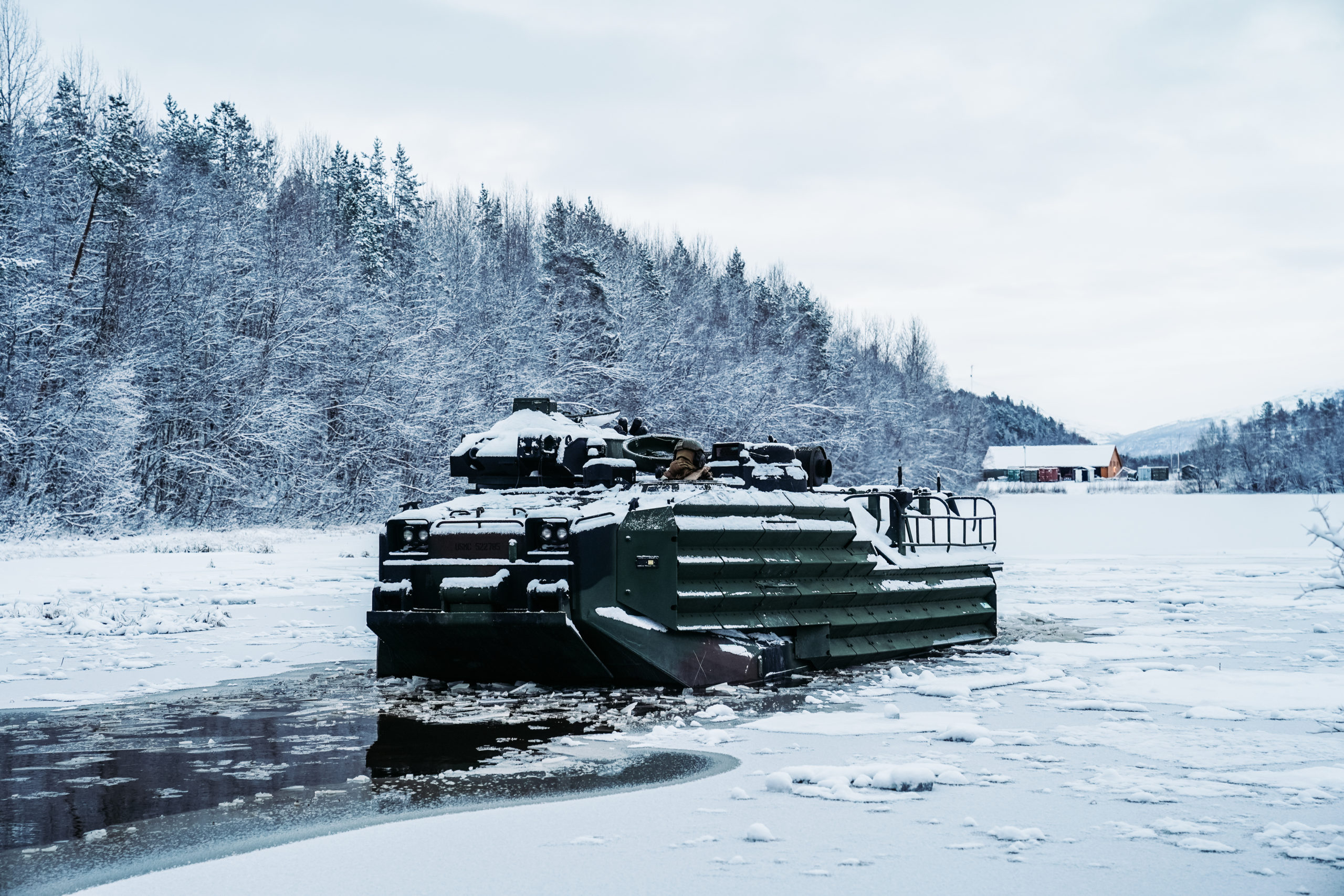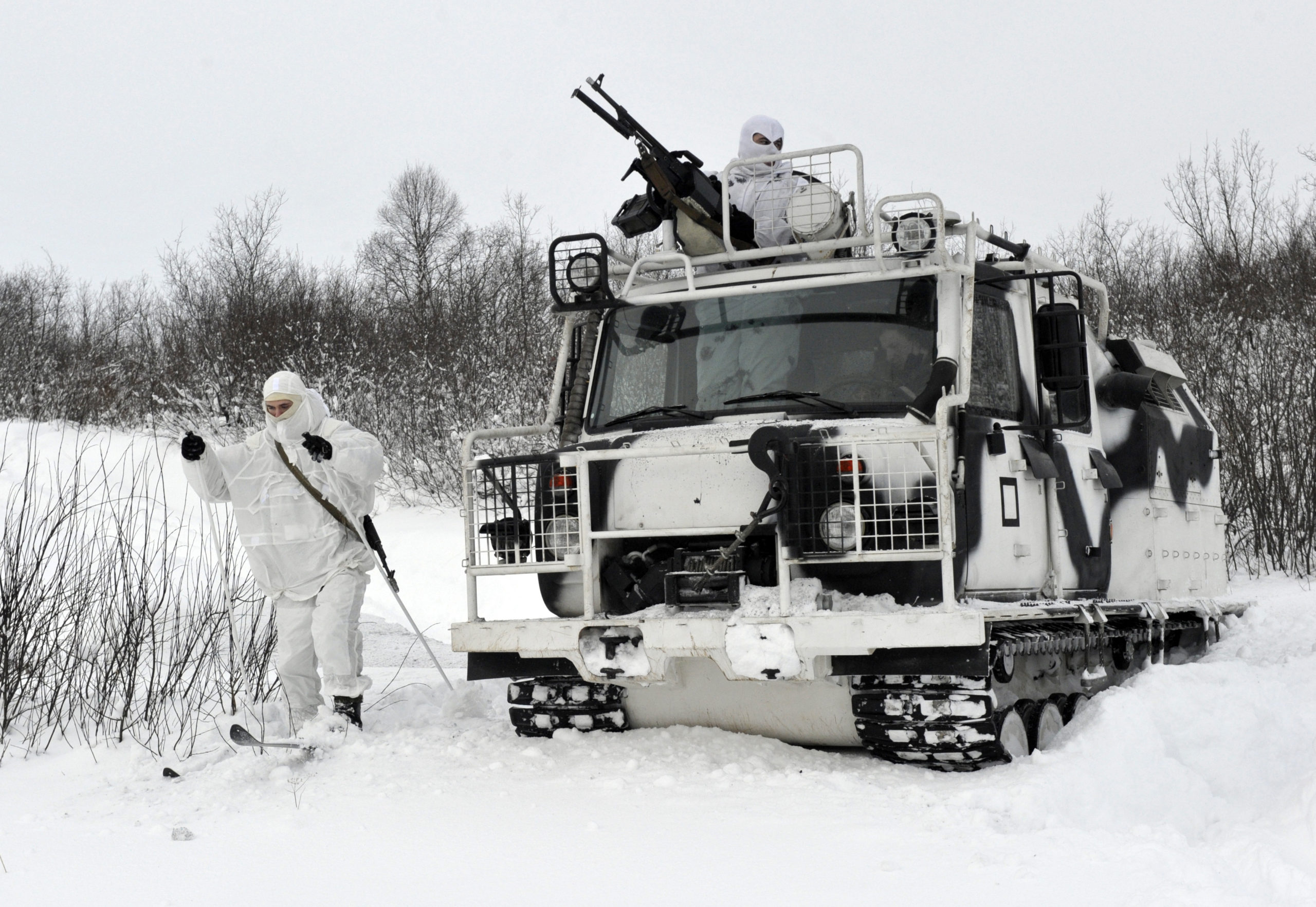We need renewed dialogue among security forces in the Arctic
Military forces operating in the Arctic need more tools to reduce the risk of escalation.

With each year, the risks of confrontation in the Arctic grow due to an increased presence of military forces, more commercial activity, and environmental shifts caused by climate change. To address this growing risk, our recent report on climate security risks in the region recommends that Arctic nations renew security dialogue and develop much-needed confidence building measures. Among many possible outcomes of such dialogue, one could be the development of a concept for a “code of conduct for Arctic forces,” which would provide communication channels for unplanned encounters, among other matters. Enshrining existing and yet-to-be developed norms for forces operating in the Arctic into a more formal code that all militaries in the region can agree upon would go far in bringing predictability and stability to the region.
[Why shifting US Arctic policy to focus on climate change will be complicated]
The military postures of both Russian and U.S. forces in the Arctic are increasingly shaped by circumstances resulting from climate change: from warming temperatures, to sea ice retreat, to collapsing permafrost on which fragile military infrastructure is built. Both Russia and NATO have stepped up their Arctic exercises in recent years, in ways that bring military forces in closer contact with civilian activities such as fishing fleets.
To help manage these challenges, the eight Arctic nations would benefit from a venue for regular dialogue among security forces, both to build confidence and to reduce risk from accidents that could lead to miscalculation or escalation. Prior to Russia’s illegal annexation of Crimea in 2014, Moscow was engaged in the Arctic Security Forces Roundtable and the Arctic Chiefs of Defense — two forums for discussing hard security matters with the seven other Arctic nations. Since 2014, Russia has not been included in these groups, which has resulted in a lack of dialogue about regional military matters.

Russia derives about 20 percent of its GDP from activities in the Arctic, primarily oil and gas extraction, as well as mining. Russia’s approach to climate change prioritizes adaptation measures, while maximizing the near-term commercial potential of its fossil fuel assets. A core Russian security priority is to ensure the Northern Fleet’s access to and through the Northern Sea Route — the corridor stretching from Novaya Zemlya to the Bering Strait — which provides a connection between the Atlantic and Pacific oceans. Russia regards the NSR as territorial waters which Moscow has a right to regulate, but this view is disputed by the U.S. and many others. Moscow has upgraded portions of its military, including the Arctic Brigade, to be “Arctic-capable” and has developed concepts of operations tailored to that specific, harsh environment. In a demonstration of its growing strategic importance, the Northern Fleet’s status was elevated to equal that of Russia’s four other military districts, a move that took effect in January.
The increased tempo of military exercises in the Arctic have the potential to lead to miscalculation, misinterpretation, or accidents and could lead to new conflicts with civilian activities. A Russian military exercise in the Bering Sea in 2020 — inside the U.S. exclusive economic zone off the coast of Alaska — caused alarm to fishing boats in the area, disrupting their legal fishing activities and leading them to flee. This was a legally executed military exercise and proper notice was provided to the United States, but this still caused alarm in the civilian population and concern arises that increasingly aggressive military activities could lead to misunderstandings or the miscalculation by one group of another’s intent. For example, what if the fishing boats had not fled? Would the U.S. Coast Guard or other forces have come to the rescue? Could that have escalated tensions with Russian military forces in the region?
Lack of coordination raises the risk of potential misunderstandings, miscommunications, accidents, or spillover tensions from another regional conflict. The priority in the Arctic must be to establish mechanisms for dialogue and communication so as to increase clarity of what is and is not acceptable behavior, and to manage risk. While it will require careful diplomacy, this communication effort can and should move forward in concert with persistent pressure on the regime of Russian President Vladimir Putin for its continuation of the type of behavior that led to its exclusion from the Arctic Security Roundtable and the Arctic Chiefs of Defense forums in the first place.
[Russia wants to resume meetings between Arctic defense chiefs]
Most Arctic nations’ military and policy planners are faced with a delicate balancing act between the need for upgrading plans and investments to adjust to a different and more active Arctic, while at the same time avoiding security dilemma dynamics and maintaining the Arctic as a region of low tension and high effort. To achieve this balance, an inclusive process to establish a framework for de-conflicting maritime and air military activities in the Arctic would be a stabilizing development, for all Arctic nations.
An approach that focuses on confidence building measures could start by renewing dialogue among defense leaders of the Arctic nations at the ministerial level. They could determine what work streams would advance confidence building, and align with existing forums, such as the Arctic Coast Guard Forum. Such a dialogue could lead to the creation of a military code of conduct for Arctic forces. That would send a powerful signal that cooperation remains an absolute priority for all Arctic states, and that they are committed to the deliberate action and investments in institution-building required to reduce uncertainty and maintain the region’s low-tension status in these changing times.
Sherri Goodman is a former deputy undersecretary of defense (for environmental security) and serves as board chair at the Council on Strategic Risks and as a senior fellow at the Wilson Center’s Polar Institute.
Marisol Maddox is an Arctic analyst at the Wilson Center’s Polar Institute, a research fellow at the Center for Climate and Security, and a Master’s degree student of international security at George Mason University, studying the nexus of security and climate change.
Kate Guy is a senior research fellow at the Center for Climate and Security, and DPhil candidate in international relations at the University of Oxford studying climate change and great power conflict.
The views expressed here are the writer’s and are not necessarily endorsed by ArcticToday, which welcomes a broad range of viewpoints. To submit a piece for consideration, email commentary (at) arctictoday.com.